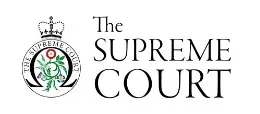Every year, the UK Supreme Court invites applications for up to 11 Judicial Assistants to support the work of the Justices of the Supreme Court of the United Kingdom and the Judicial Committee of the Privy Council (JCPC).
Applications for the 2024/25 legal year opened on the 29th January 2024. Fixed term contracts will start on Monday 16th September 2024 and finish on Friday 1st August 2025.
The salary is £38,905 per annum (with potential for increase due in the 2024 Pay Award).
The Judicial Assistant role is intended to provide junior lawyers with a unique opportunity to work at close quarters in support of the Justices. It enables junior lawyers to see the Supreme Court and the JCPC in operation from the inside.
The Supreme Court and JCPC hear many of the most important cases of the day. The appeals are very varied and generally raise an arguable point of law of general importance, so the work is both interesting and impactful.
The Judicial Assistants have the opportunity to get to know the Justices and to see their decision-making in action. By reading the parties’ written submissions and watching the appeal hearings, the Judicial Assistants are also able to learn from some of the UK’s best advocates.
Working as a Judicial Assistant is regarded highly by law firms, chambers and other employers – our Judicial Assistants typically go on to have successful careers at the Bar, top law firms, academia, the Government Legal Department and in policy.
UK Supreme Court – Why apply to be a Judicial Assistant?
Each Judicial Assistant is assigned to one or more Justices. They work very closely with their assigned Justice(s) and support them by:
- Conducting legal research on appeals and applications for permission to appeal
- Drafting bench memos summarising applications for permission to appeal
- Attending appeal hearings and discussing them with the Justices
- Drafting plain English press summaries of judgments for publication on the Court’s website
- Responding to requests for information from international judicial and comparative law networks
- Generally assisting the Justices in their work, including with extra-judicial speeches, articles and other publications.
Judicial Assistants also get involved in the wider work of the Court. For example, they may be asked to assist the Registrar with regards to applications for permission to appeal and appeals. All Judicial Assistants get involved with the Court’s educational and outreach activity, such as student mooting competitions and debate days.
Supreme Court – What do Judicial Assistants do?
How can I apply to be a Judicial Assistant at the Supreme Court ?
To apply to be a Judicial Assistant at the UK Supreme Court, please complete the online application form.
Closing date for applications is midnight on Sunday 31st March 2024. Please note that late applications will not be considered.
Interviews are likely to take place week commencing 20th May 2024 in person at the Supreme Court.
We recommend you should always seek formal legal advice if required, from a qualified and reputable lawyer (solicitor or barrister).
We have a number of links to Free Legal Resources and Legal Organisations on our Free Legal Advice , Legal Aid and Pro Bono pages.
Read the reviews of Gavin Howe Barrister
“He is awful, underhanded and should not be practising law!”
Latest Articles
- What is a Paralegal ?A paralegal is a legal professional who performs tasks that require knowledge of legal concepts but does not hold the… Read more: What is a Paralegal ?
- What is a Judgment ?A judgment, also known as a judicial decision or court ruling, is the final decision made by a court of… Read more: What is a Judgment ?
- What is an Adverse Inference ?Adverse inference is a legal principle that plays a significant role in various areas of law, including criminal, civil, and family law. It arises… Read more: What is an Adverse Inference ?
- BarristersA barrister is anyone who has been Called to the Bar in England and Wales. For a barrister to offer… Read more: Barristers




